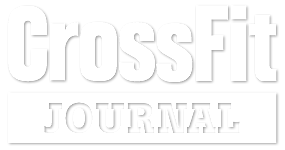
These last two topics are minor details that we recommend you don’t worry about until you have all your other nutrition decisions correct. If you are worried about pre and post-workout nutrition and timing but you’re still having a slice of banana bread and saltine crackers for lunch then you’re completely putting the cart before the horse. Get the basics right first and then let the details follow. So on to the answer…For optimum performance, in the 24 hours prior to a workout you should eat Zone proportion meals from clean food sources, just as we recommend you eat every day. The only real question is what volume of food should you eat prior to a workout, and the answer is unique to every athlete. Almost nobody prefers eating immediately prior to a workout, in the 30 minutes or less before 3, 2, 1, GO! Most athletes eat an hour or more prior to the workout. Some athletes find they must fast longer prior to the WOD in order to avoid nausea. However, your performance will suffer if you don’t consume some fuel before the WOD, so make sure you’ve eaten a quality meal sometime in the 1-3 hours prior. Only experimentation and finding what works for you will yield the answer.
The Paleolithic diet is a way of eating based on the foods our ancestors ate during Paleolithic era, spanning from over 2.5 million years ago up until 10,000 years ago. The first research on the Paleolithic diet in modern man was first published in the New England Journal of Medicine in the 1970’s. The term “paleo diet” was first coined by Dr. Loren Cordain, a professor and researcher at Colorado State University. He began publishing research on the benefits of a paleo diet over 20 years ago, and researchers have continued publishing studies showing the benefits of ancestral diets into the present.
The Paleo diet is based on the idea that the human genome has not evolved very much over the past 10,000 years, and that our bodies are most suited to the diets that our Paleolithic predecessors ate than to our current Western diet. Using anthropological data, Dr. Cordain determined that our Paleolithic ancestors ate mostly game meats, fruits and vegetables, nuts, seeds, and some oils. Foods like grains, beans, legumes, and dairy were not part of the normal human diet until the Agricultural Revolution began


